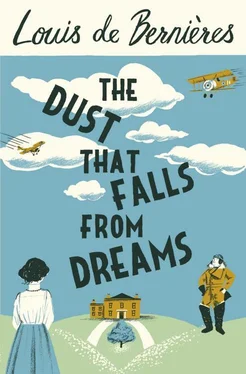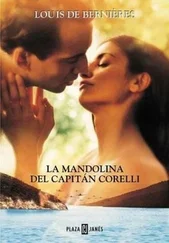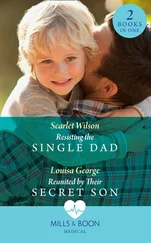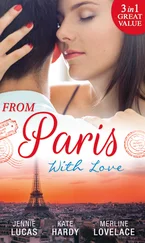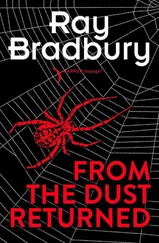When I bought a copy of Rupert Brooke’s Selected Poems later on, I was stunned when I saw the picture of the poet at the beginning, and almost fainted away. I thought for a moment it was Ash. He was so beautiful that it gave you a kind of pain from which you might never recover. When I read Brooke’s love poetry I always think of Ash. I used to have lines that went round and round in my head. ‘ Oh! Death will find me, long before I tire of watching you .’ ‘ Breathless, we flung us on the windy hill, laughed in the sun, and kissed the lovely grass .’ Unlike most people, I valued Brooke’s love poems a lot more than the famous patriotic ones.
Ash and I were real sweethearts. He was so kind, so solicitous. If I was ill, he’d call round and sit in the morning room, where we had family prayers, and he’d just wait for the servants or one of my sisters to come and give him snippets of news about how I was. Whenever I thought of Ash, I would get a lurching feeling in my chest, and my throat would feel dry. Sometimes we would just stand and look at each other as if we were paralysed. If we touched, I would get a tingle down my spine and into my legs. By the time we were about fifteen our passion was so great that we couldn’t even speak, and we communicated by little notes that went via the servants. I gave my notes to Cookie, who took them round to their cook, and then their cook would bring the replies round to Cookie. As the cooks were always borrowing things from each other, it was all terribly easy. Entering into little conspiracies with the servants, when people still had them, was one of the small joys of life. I keep Ash’s notes and letters in a biscuit tin. I still read them sometimes, damaged though they are, and all the feelings come pouring back. Ash and I were engaged to be married when I was twelve and he was thirteen. Our first engagement ring was a brass curtain ring, so it was much too big to wear, and I keep that in the tin too. It was our secret, and anyone would have told us that we’d grow out of it.
We never did. On 29 May 1910, Ashbridge came round with a gramophone. He was practically the first to get one. We needed something to cheer us up after King Edward’s death, and so he brought it round almost every day, to entertain us, and one day he stayed until it was 11.20. Sometimes my sisters and I rolled up the carpet and had dances. We’d suddenly realised that you didn’t need to hire a pianist and violin player any more. It was when we were dancing to the gramophone that I truly had the chance to drink him in, to breathe him, to realise that I adored him so much that it would probably be impossible ever to love another. He used to look at me with his eyes so full of devotion that it made me shiver. The physical longing was almost too much to bear.
Just after war broke out in 1914, he came round to speak to my father. He had walked up the driveway singing ‘I’m Gilbert the Filbert, the Knut with the Capital Kay’. It was Basil Hallam’s song from the Palace Theatre that everyone had been singing before it was knocked aside by all the patriotic ones. Ash sometimes vamped it on the piano. He mostly liked to sing those sentimental plantation songs by Stephen Foster, like ‘The Old Folks at Home’ and ‘Poor Old Joe’ and ‘Massa’s in de Col’ Col’ Ground’. He had a lovely voice but the piano was always out of tune, and it even made sad songs sound comical. Father said we should get one with a metal frame, but we never got round to it. I think that poor Basil Hallam was eventually killed when he fell out of a balloon.
Ash and my father went into the dining room and shut the door. I heard their voices, their laughter, and it was difficult to avoid the temptation to hover outside, because I knew what was going on and couldn’t wait to hear the result. I went and sat in the drawing room with my mother and my sisters. They were talking about the war, but I couldn’t think of anything except what Ash might be saying to my father. Bouncer was at my feet. He was an old dog by then and had completely lost his bounce. His muzzle was grey and his eyes rheumy, but he was still the same affectionate and not very clever dog, devoted above all to me and to my father.
My father was a clever Scotsman who went up to the City for three days a week, and stayed at his club. He made piles of money by thinking of things that needed to be manufactured, and buying and selling stocks and shares, and none of us ever really understood what he did or how he did it, apart from the steady stream of golf novelties that he came up with. He was regularly thrown into absolute dejection by losing all his money at once, but then he always managed to recoup his losses somehow, just in time to pay off the tradesmen. He put on an excellent show of being confident and jolly, but he was always mildly anxious and on edge. He used to say: ‘I’d like to get out of this gambling business and actually make something, get into manufacturing properly. Can’t think of anything that someone isn’t already making, though.’ At this time he was saying, ‘Perhaps I can dream up something that might be useful for the war. Boots? Bridles? Bullets? Barrels? Other things beginning with B?’ He did invent and sell several devices designed to improve one’s golf, golf being the great passion of his life. He treated it like a patriotic duty.
When my father and Ash came into the drawing room, they were both holding a glass of whisky in one hand, and a cigar in the other. Ash never did smoke, and he was letting his go out. Father exhaled a big puff of smoke, and said, ‘Wonderful news. Do you want to hear it?’
‘Ooh, yes!’ we all cried, except for Mother, who had a stern habit that she rarely let slip. She was the kind of mother who believed in exposing newborn babies on hillsides. Her favourite adage was ‘Spare the rod and spoil the child’.
‘Young Ashbridge here has requested my permission to ask for Rosie’s hand in marriage,’ said Father, ‘and I have given my consent.’
My sisters all squealed and applauded, my mother smiled faintly, and I believe I went pale. I could hardly prevent myself from trembling.
‘I have asked him to turn Mahommedan and marry all four of you. I begged him to take you all off my hands in one big shebang, but sadly he has eyes only for Rosie. I even advised him against marriage altogether, but he is not to be deterred. What do you say, Rosie bairn?’
‘But, Father, he hasn’t even asked me.’
‘Come on, old thing,’ said Ash, ‘I asked you when you were twelve. You have a brass curtain ring to prove it.’
‘Ask her again!’ cried Sophie. ‘Oh, how impeachably romantic! Come on, Ash. Ask her again!’
Sophie was my youngest sister. She was sweet, and, until we knew better, we all thought her a bit silly because she muddled up her words very dreadfully sometimes. Mother said, ‘Sophie dear, I think you mean “impeccably”.’
‘May I speak to Rosie in private?’ asked Ash, but my sisters wouldn’t allow it. ‘Be a sport,’ said Ottilie.
‘Oh, go on, Ash,’ said Christabel.
‘What if I say “no”?’ I said.
‘That would be exscreamingly hard for poor Ash,’ said Sophie. ‘You know you wouldn’t.’
‘Well, Rosie,’ said Ash, ‘what do you say? Will you marry me?’
I was shaking so hard that I couldn’t control myself. Suddenly I burst into tears and buried my face in my hands.
‘I think that means “yes”,’ said Christabel.
Ash knelt down before me and said, ‘Does it?’ and I nodded. Everyone except Mother danced and capered. Mother paused in her embroidering, and said, ‘My dear, I have always thought of you as a son, and now you will be!’ My three sisters held hands and did an impromptu circle dance. Ash stood up and beheld the mayhem with amusement and affection in his eyes.
Читать дальше
